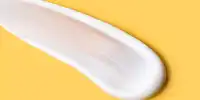Picking your nose can allow dangerous bacteria to reach your brain, according to a recent study.
Digging your nose is a weird habit. Those who are bored or anxious sometimes pick their noses. This behavior may increase your risk of dementia and Alzheimer’s disease, according to a recent study. A microorganism may enter mice’s brains via the olfactory nerve in the nose and produce markers that can be used to identify Alzheimer’s disease, according to research from Griffith University in Australia.
The majority of human brains with late-onset dementia contain the bacteria Chlamydia pneumonia, which may infect people and cause pneumonia, according to a study that was published in the journal Scientific Reports.

According to the study, it entered the brain via a nerve that connects the nasal cavity to the central nervous system. The amyloid beta peptide, which is a characteristic of Alzheimer’s disease, was then secreted by the brain’s cells in response.
The study employed mice as its subject. In a press release, Professor James St. John, the director of the Clem Jones Centre for Neurobiology and Stem Cell Research, said, “We saw this happen in a mouse model, and the evidence is potentially worrisome for humans as well.”
The research also highlights the direct connection between the olfactory nerve, which is in contact with air, and the brain. Bacteria and viruses have recognized the brain’s entry as a handy location. They stated that the purpose of their next research is to show that the same mechanism also occurs in individuals.
Despite the fact that this research has been suggested by numerous people, Professor St John states that it has not yet been completed. “To determine whether the same pathway behaves in the same manner in humans, we must conduct this investigation. Numerous people have suggested this research, but it has not yet been finished.”
He said it’s not a good idea to pick your nose or pluck your nose hairs.
The professor went on to warn that there is a higher possibility that bacteria would enter the brain if one injures the lining of their nose.
















